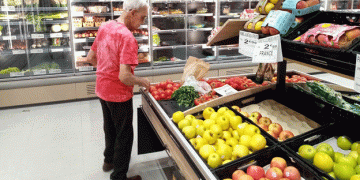In a revealing report published on December 12, 2022, Générations Futures, a prominent French environmental NGO, presented its analysis of pesticide residues in non-organic fruits and vegetables sold in France in 2022. The study, based on data from the National Food Surveillance Plan conducted by the Directorate General for Competition (DGCCRF) and the Directorate General for Customs and Indirect Taxes (DGCCI), analyzed 1,996 samples. These samples, drawn from various categories, revealed troubling results: 62% of the non-organic fruits and vegetables tested contained at least one residue of pesticide classified as hazardous to human health.
Among these, 80% of the fruits and 48% of the vegetables tested positive for pesticide residues. The analysis identified 137 different active substances, with 56% of non-organic fruits and 23% of non-organic vegetables containing residues classified as carcinogenic, mutagenic, or toxic to fertility. The presence of these residues underscores the health risks associated with consuming conventionally grown produce. Notably, the analysis found that 90% of cherries, 84% of mandarins and clementines, and 74% of strawberries contained at least one pesticide residue.
One of the most concerning findings was the detection of per- and polyfluoroalkyl substances (PFAS) residues in 34% of fruits and 21% of vegetables tested. PFAS, often referred to as “forever chemicals,” are notorious for their persistence in the environment and their adverse effects on health. These pollutants are linked to a range of health issues, including cancer, endocrine disruption, and reduced fertility. The presence of PFAS in the analyzed samples indicates not only a widespread contamination problem but also a significant challenge for reducing exposure through food.
Générations Futures emphasized the urgency of addressing these pesticide residues, particularly in light of the potential health risks associated with endocrine disruptors and other hazardous substances found in fruits and vegetables. The NGO’s findings highlight the need for stronger regulations and greater consumer awareness about the risks of pesticide residues in non-organic produce. They advocate for a transition towards organic farming practices, which, although initially more expensive, offer a safer and more sustainable alternative for both consumers and the environment.
The findings of the Générations Futures analysis reveal a critical need for increased regulation and monitoring of pesticide use in agriculture. The presence of dangerous residues in a significant portion of non-organic produce highlights the necessity for consumers to be more informed about where their food comes from and how it is grown. While organic farming provides a safer option, broader systemic changes are required to make pesticide-free produce more accessible and affordable. Governments, farmers, and consumers must collaborate to reduce pesticide use and support sustainable agricultural practices that protect both human health and the environment.































